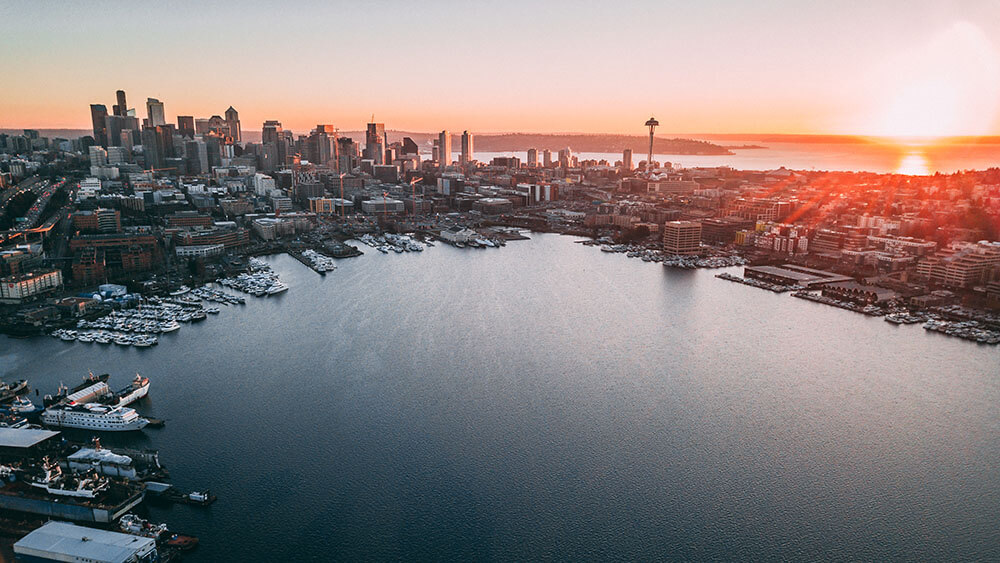According to a 2019 Randstad US survey, 81% of American workers prefer a diverse workplace. Moreover, companies are valuing and cultivating diversity more than ever.
With this in mind, Seattle is a prime locale for global meeting planners to consider. After all, it’s a sanctuary city built on the foundation of diversity, making it a hospitable place for visitors from all over the world. From being named after a Native American Chief and receiving one of the largest Ethiopian refugee communities in the U.S., to preserving cultural beacons like the Chinatown-International District and the National Nordic Museum, Seattle welcomes all attendees with its naturally inclusive atmosphere.
Though the story of Seattle’s diverse cultural fabric starts early—with Chief Seattle, a chief of the Suquamish and Duwamish tribes native to the area, famous for working with American pioneers to turn their fledgling city into a home for all—the torch is carried by its contemporary leaders. For instance, Seattle’s mayor, Jenny Durkan, told the Washington Post, “Seattle is not afraid of immigrants and refugees… we have always welcomed people who have faced tremendous hardships around the world.” Mayor Durkan and many others have helped make Seattle home to the most diverse area code in the United States, 98118, which is home to 66 different languages.
Seattle continues to honor Chief Seattle’s memory through an inclusive attitude, and by naming streets, neighborhoods, and geographical features in Native American languages. The city has also installed Native art—such as totem poles and canoe carvings—for visitors to appreciate. Visitors may look further into Indigenous culture at Seattle Art Museum, the Duwamish Longhouse and Cultural Center and the Suquamish Museum.
Everyone is welcome here, regardless of background, and they have been for a long time. In fact, African immigrants and refugees—particularly from Ethiopia—have thrived in the city since the 1960s. This robust Ethiopian community gives attendees the opportunity to experience Ethiopian culture throughout the city, like eating the traditional Ethiopian flatbread called injera or exposure to Amharic, Ethiopia’s native language, which is still honored and taught in Seattle public schools.
Nordic heritage also shows up in myriad ways that highlight Seattle as an inclusive backdrop for meetings. Since fishermen from Scandinavia, Finland and Iceland settled in Seattle in the late 19th century, they’ve helped shape Seattle’s identity as a port city by the sea. The newly renovated National Nordic Museum in Ballard explores this group’s historical importance and can be rented for your next inspired corporate event. Additionally, attendees will see Scandinavian influence in the city’s love of Scandinavian folk art installations, like the large mosaic mushrooms in Bergen Place Park, in the boisterous Viking beer halls like Skål and in Seattle’s firm grasp of hygge, the Danish concept of creating and enjoying coziness amid nature.
Likewise, Seattle has the Chinatown-International District, home to Chinese, Japanese, Pacific Islander, Filipino, Korean, Vietnamese, and South and Southeast Asian immigrants who have brought their unique food, music, dance, art and so much more to the city. For instance, attendees can experience an authentic Japanese tea ceremony at the Panama Hotel, see jade carvings at Volunteer Park’s Seattle Asian Art Museum, enjoy hand-pulled Chinese noodles at Pike Place Market, or do some team-building with K-pop karaoke at Star Karaoke in the University District or Rock Box in Capitol Hill.
In the end, all of these communities weave together to create a colorfully diverse city that offers more to both meeting planners and attendees. And with the expansion of the International Arrivals Facility at Seattle-Tacoma International Airport, the city will almost double international-capable gates, creating more opportunities to welcome attendees from all over the world. The airport now serves 29 international destinations, adding new or expanded service to Singapore, Dublin, Tokyo-Narita, Osaka, Hong Kong, Paris and Munich in the past two years alone.
Seattle’s cultural diversity offers more options for food, live music and art to infuse an attendee’s stay with unique flair, more opportunities to contextualize the city’s ever-growing globlal significance, and more chances for any attendee to feel included, valued and inspired in a way that they’ll never forget.

